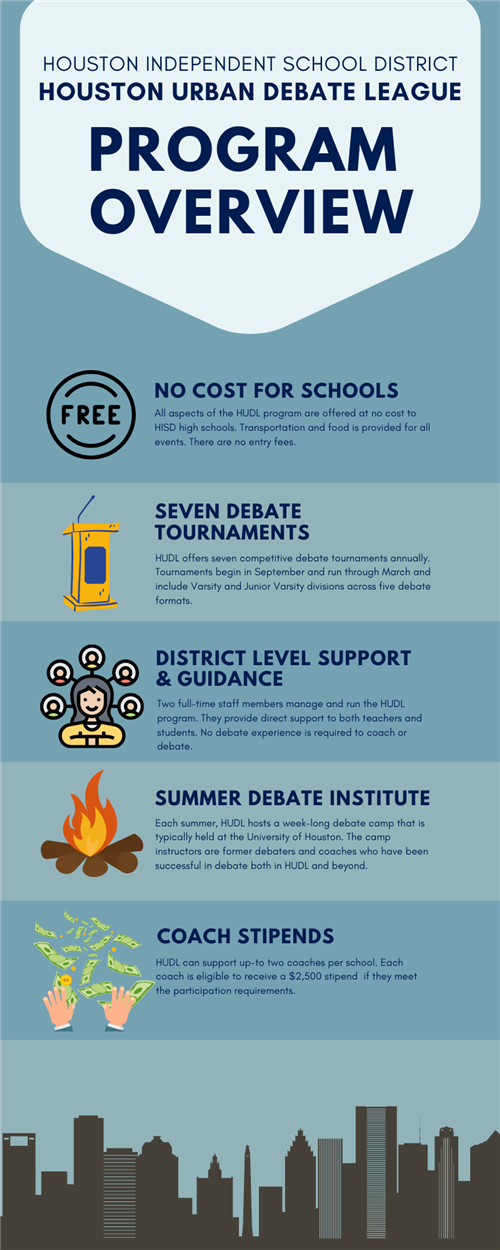All forms of debate develop important skills such as critical thinking, listening, argument construction, research, note-taking, etc. However; each format has its own unique elements that make it distinctive.
CROSS EXAMINATION DEBATE: Allows students to focus on a single debate topic each year; thereby becoming “subject-matter- experts.” Topics typically call for a policy change by the U.S. government.
CONGRESSIONAL DEBATE: A mock legislative assembly competition where students draft bills (proposed laws) and resolutions (position statements), which they and their peers later debate and vote to pass into law.
PUBLIC FORUM DEBATE: Offers students a unique opportunity to develop on-their-feet critical thinking skills by providing an experience similar to an presidential debate. Topics change monthly, giving students exposure to a wide range of important issues.
WORLD SCHOOLS DEBATE: Challenges students by having them debate multiple topics at each tournament. These topics change every round and include impromptu debates.
LINCOLN–DOUGLAS DEBATE: A type of one-on-one debate practiced mainly in the United States at the high school level. It is sometimes also called values debate because the format traditionally places a heavy emphasis on logic, ethical values, and philosophy. The Lincoln–Douglas Debate format is named for the 1858 Lincoln–Douglas Debates between Abraham Lincoln and Stephen A. Douglas.


